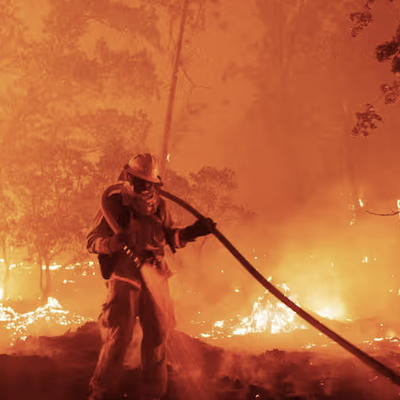
the Secretary General of the UN, António Guterres, writes 'Humanity is waging war on nature. The consequences of our recklessness are already apparent in human suffering, towering economic losses and the accelerating erosion of life on Earth.
Really?
Are we really waging war on nature? It is true that the actions of humans are causing the problems but I think it's a stretch to describe it as war.
Waging war implies an intent to destroy. The reality of environmental collapse is more like attrition: 'the process of reducing something's strength or effectiveness through sustained attack or pressure'.
Anyway, whatever you like to call it, and whatever is causing it - the world is in a bit of a pickle right now. These are dark and challenging times - but haven't they always been?
If you put a timeline of the last few millenia on the wall and chuck a dart at it, chances are you will hit a 'dark and challenging' period in history. Wars, famine, inter-tribal violence, disease, inequality, oppression, nature in freefall - it's all there. And if you zoom in to any given community, anywhere in the world at the time, you will probably find people feeling that things are not as peaceful and comfortable as they would like.
The new UNEP report claims to be a scientific blueprint to tackle the climate, biodiversity, and pollution emergencies. Big changes are needed, and huge amounts of money need to be diverted from the the old way to the new. That is to say, away from unsustainable methods and technologies and towards renewable energy and sustainable practices.
The irony is that we, particularly in New Zealand, are not having a hard time. In fact things are pretty good.
We are being told we must change our ways, give up the good life and live more frugally, choose the more expensive but greener options at the supermarket, give up the big gas guzzling cars, recycle more, discard less.
But we're all OK here, so why should we make our lives less comfortable to solve a problem we don't necessarily have?
Good question, why indeed?
The answer is that the information comes from reliable sources. The weight of scientific opinion in support of the case for climate change is so far ahead of the opposing position as to make the latter trivial. Scientists, thinkers, writers, and leaders around the globe are almost unanimous: There is a problem. Have a look at www. unep.org and see whether you think that is a credible source of information.
Many people believe many different things - not all proven, and yet it seems that so many people struggle to accept the reality of the challenges facing our planet today. Perhaps it's not even that people don't believe the science; perhaps for the most part they're just not that bothered.
How to deal with that?